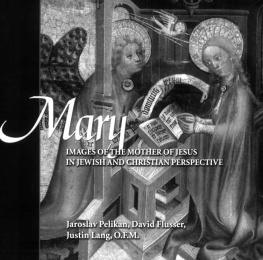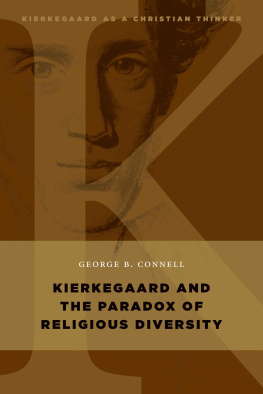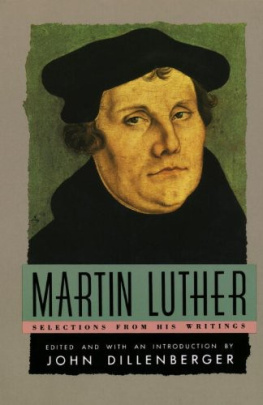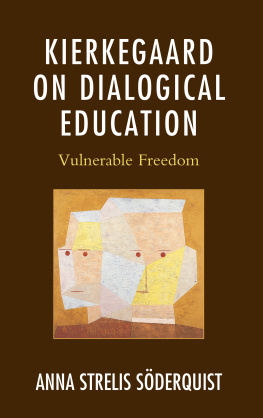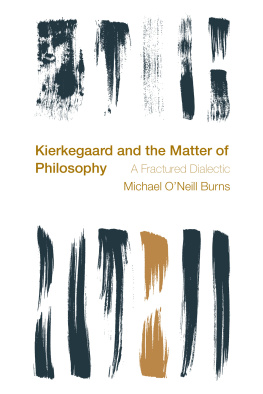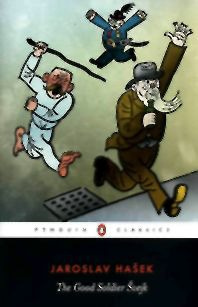Jaroslav Pelikan - From Luther to Kierkegaard
Here you can read online Jaroslav Pelikan - From Luther to Kierkegaard full text of the book (entire story) in english for free. Download pdf and epub, get meaning, cover and reviews about this ebook. year: 1950, publisher: Concordia Publishing House, genre: Religion. Description of the work, (preface) as well as reviews are available. Best literature library LitArk.com created for fans of good reading and offers a wide selection of genres:
Romance novel
Science fiction
Adventure
Detective
Science
History
Home and family
Prose
Art
Politics
Computer
Non-fiction
Religion
Business
Children
Humor
Choose a favorite category and find really read worthwhile books. Enjoy immersion in the world of imagination, feel the emotions of the characters or learn something new for yourself, make an fascinating discovery.

- Book:From Luther to Kierkegaard
- Author:
- Publisher:Concordia Publishing House
- Genre:
- Year:1950
- Rating:3 / 5
- Favourites:Add to favourites
- Your mark:
- 60
- 1
- 2
- 3
- 4
- 5
From Luther to Kierkegaard: summary, description and annotation
We offer to read an annotation, description, summary or preface (depends on what the author of the book "From Luther to Kierkegaard" wrote himself). If you haven't found the necessary information about the book — write in the comments, we will try to find it.
From Luther to Kierkegaard — read online for free the complete book (whole text) full work
Below is the text of the book, divided by pages. System saving the place of the last page read, allows you to conveniently read the book "From Luther to Kierkegaard" online for free, without having to search again every time where you left off. Put a bookmark, and you can go to the page where you finished reading at any time.
Font size:
Interval:
Bookmark:


Copyright 1950 by
CONCORDIA PUBLISHING HOUSE
SAINT LOUIS, MISSOURI
MANUFACTURED IN THE UNITED STATES OF AMERICA
Like many other theological books, this volume came into being through a series of lectures. In its original form most of this material was presented in various essays before Lutheran pastoral groups in Dubuque, Iowa, Valparaiso, Indiana, and Gettysburg, Pennsylvania. Though I have made revisions in style for the sake of the shift from the spoken to the written word, the reader will probably still hear echoes of the lecture platform and will, I trust, make allowance for them.
The purpose of this presentation is to analyze the interrelations that have existed between philosophical thought and Lutheran theology since the days of the Reformation. Obviously a work of this size could not hope to touch upon every aspect of those interrelations; I have instead concentrated upon several critical periods and personalities, hoping thereby to highlight some of the principal issues raised by the history of Lutheran theology in its relation to philosophy.
As a result, the material and conclusions presented here should be of some value to students of both philosophy and church history, though my primary concern in these pages has been neither philosophical nor historical, but theological. Philosophy is of interest to me also for its own sake, for I began this work while I was a teacher of philosophy at Valparaiso University. But it is primarily as a student of theologyand, more recently, as a teacher of theologythat I have addressed myself to philosophical problems. This essay, then, is a historical investigation of Prolegomena in Lutheran theology. Through it I hope to stimulate a deeper concern for the resources which the confessional heritage of historic Lutheranism provides for theological work.
I owe my thanks to many menhistorians, philosophers, theologianswhose work has helped shed light on the trends and problems dealt with in this treatise. I have tried to indicate the extent of my debt to them in the notes printed at the rear of the book. In my method I have been particularly influenced by the work of Werner Elert and of Karl Holl, the latter through Wilhelm Pauck, who was Holls pupil and, in turn, my teacher. Above all, however, I have had occasion to draw once more upon the theological wealth, much of it still unadministered, that is latent in the thought of Martin Luther and in the Lutheran Confessions.
Special gratitude is due my parents, to whom I also dedicate this volume as an expression of my continued devotion.
The Anniversary of the Augsburg Confession
June 25, 1950
JAROSLAV PELIKAN
Lutheranism has had to face the problem of its relationship to philosophy ever since the Reformation. But if we begin our examination of the interrelations between Lutheranism and philosophy with the period of the Reformation, we must be perfectly clear about the fact that Luther was not a philosopher; nor, for that matter, did he want to be one. Luthers great accomplishment was not philosophical, nor yet theological, but evangelical.
It was Martin Luthers divinely appointed task to restore to its proper centrality the assertion that in the forgiveness of sins Jesus Christ has become the Lord and the Savior, to bear personal testimony to that lordship, and thus to reassert in all its strength the true Christian Gospel. This is not theology as that word is usually understood; for theology in the usual sense of the word does not come until after this personal relationship has been established, until the Christian man gets down to thinking it over.
Nevertheless, like it or not, Luther was faced by philosophy and was forced to take account of it. For, regardless of his own theological or religious stand, one cannot escape the fact that after all these years philosophy seems to be here to stay and that the connection between Christianity and philosophy is probably here to stay, too. Etienne Gilson has taught us to speak of Christian philosophy as an historical fait accompli and has shown that without at least an historical appreciation of Christian precept and dogma no one can understand or interpret the history of European philosophy since Marcus Aurelius. and at least since his time there has been a relationship between Christianity and philosophy that neither the secularism of John Dewey nor the isolationism of Karl Barth has been able to eradicate. Whether that relationship has been beneficial or detrimental to either Christianity or philosophy is an important question for both to answer. But for our purposes it is more important to note that every major Christian teacher has inherited a Christianity that was tinged with philosophy and a philosophy that was colored by Christian thought.
And so it was with Luther. As a man of the sixteenth century, however, he inherited a tradition in which Christianity and philosophy were much more closely intertwined than they are today. This was particularly true of classical medieval theology and philosophy, as represented by Thomas Aquinas. It was characteristic of the synthesis which medieval piety and thought effected between the agape of the New Testament and the eros of ancient Greece that philosophy and theology should have interacted as much as they did. But what Gilson does not point outand what, as a Roman Catholic, he cannot be expected to point outis that the magnificent combination of faith and reason in the Middle Ages was effected at the expense of faith, and that the impact of the divine agape in the Cross of Christ was too often weakened in the caritas synthesis of the medieval Church.
It was primarily against this aspect of medieval theology that Luther revolted. Precisely because his was an evangelical concern, as has already been mentioned, he violently objected to the fact that philosophy had been permitted to mollify theology to the extent that it had. In this objection Aquinas was the particular target of his attacks. The extent of Luthers
But what he did know of Aquinas, Duns Scotus, and Peter Lombard he did not like, and that primarily for religious reasons. Though he does accuse them of being poor philosophers as well as incompetent theologianshis expressions, characteristically, were much stronger Thus it is clear that it was because of what they had done to free grace, and not principally because of what they had done with Aristotle, that Luther repudiated the systems of the medieval thinkers.
Yet another factor involved in Luthers attack upon medieval thought was the general weariness with scholasticism that characterized much of the fifteenth and sixteenth centuries. One has only to read the works of John Hus or of Nicholas of Cusa
How strongly Luther was affected by the via moderna we can judge from his cosmology. The doctors of the thirteenth century had developed an elaborate doctrine of the universe, based partly upon Aristotle and mostly upon the Alexandrian astronomer Ptolemy. It is this cosmology that is so beautifully dramatized in Dante Alighieris Divine Comedya universe which, as Anatole France puts it, was so simple that it was represented in its entirety with its true shape and motions in certain great painted clocks run by machinery.
Font size:
Interval:
Bookmark:
Similar books «From Luther to Kierkegaard»
Look at similar books to From Luther to Kierkegaard. We have selected literature similar in name and meaning in the hope of providing readers with more options to find new, interesting, not yet read works.
Discussion, reviews of the book From Luther to Kierkegaard and just readers' own opinions. Leave your comments, write what you think about the work, its meaning or the main characters. Specify what exactly you liked and what you didn't like, and why you think so.

